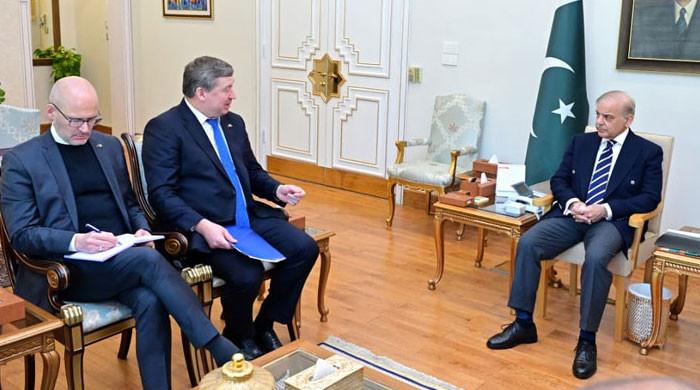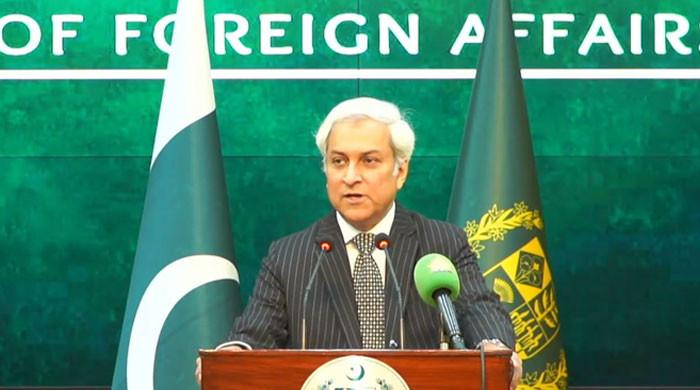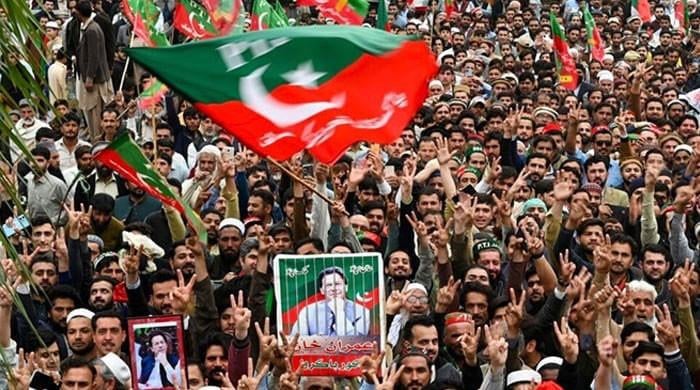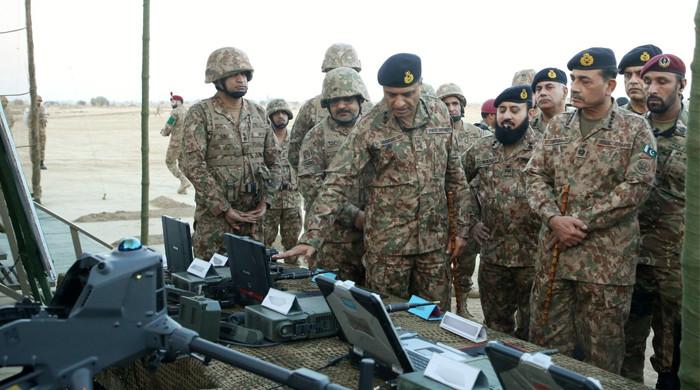Senate polls: SC to hear presidential reference on January 4
A five-judge larger bench presided by Chief Justice of Pakistan Gulzar Ahmed will hear the presidential reference
December 29, 2020
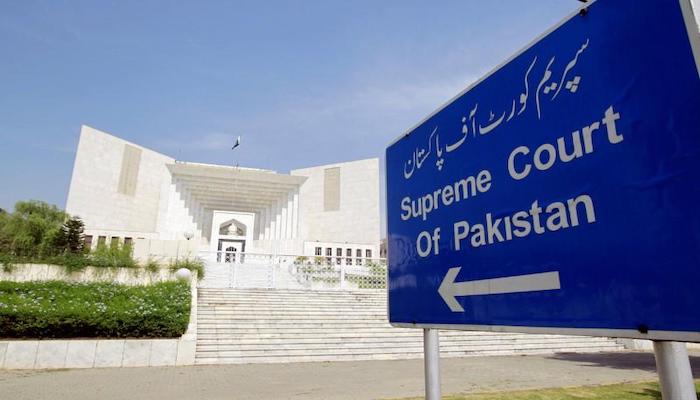
- Hearing fixed for January 4
- Five-member larger bench to hear the presidential reference
ISLAMABAD: The Supreme Court of Pakistan on Tuesday fixed the hearing of the presidential reference that has sought guidance on hilding upcoming Senate elections through a show of hands.
A five-member larger bench headed by Chief Justice of Pakistan Gulzar Ahmed and comprising Justice Mushir Alam, Justice Umar Ata Bandial, Justice Yahyah Afridi and Justice Ijazul Ahsan will hear the reference on January 4, 2020.
The reference was submitted by the Attorney General of Pakistan Khalid Javed Khan after obtaining President Dr Arif Alvi's approval under Article 186 of the Constitution last week.
Read more: PTI govt files reference in Supreme Court seeking opinion on open ballot for Senate polls
The reference read that the president has sought the apex court's opinion on whether the condition of holding a secret ballot referred to in Article 226 of the Constitution is applicable only for the elections held 'under' the Constitution such as the election to the office of president, speakers and deputy speakerss of the Parliament and provincial assemblies and "not to other elections such as the election for the members of Senate" held under the Elections Act 2017 enacted to pursuant to Article 222 read with Entry 41 (1) of the Fourth Schedule to the Constitution "which may be held by way of secret or open ballot" as provided for in the Act.
According to the government, the nature of the elections and the way it is conducted has not been clearly mentioned in the Constitution.
The government said election for the Senate is conducted in accordance with the Election Act of 2017 and asked if it is possible to introduce the idea of open-balloting in the upper house of the Parliament.
In its reference, the government said that the process of 'show of hands' instead of secret balloting will bring transparency to the Senate elections, adding that secret balloting leads to widespread corruption among members.




